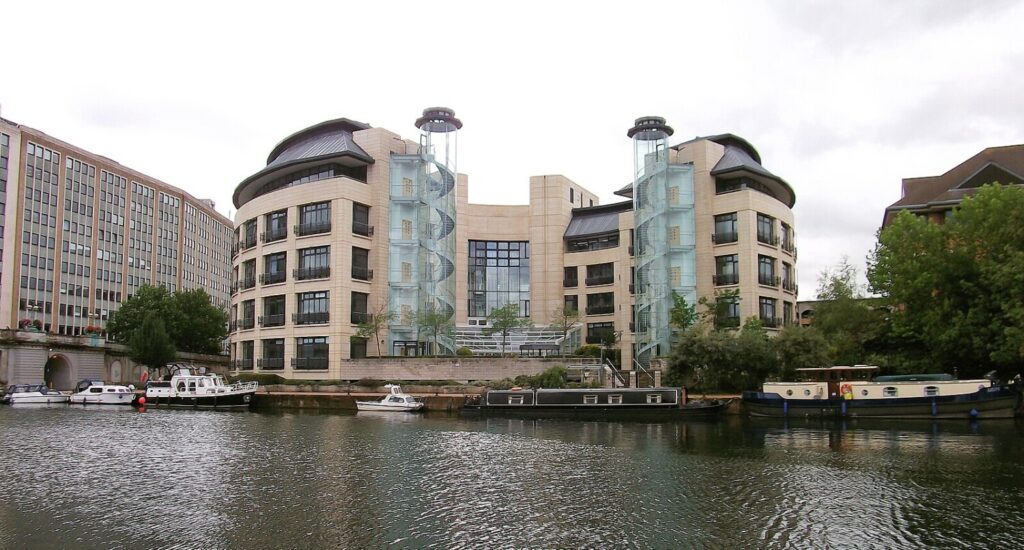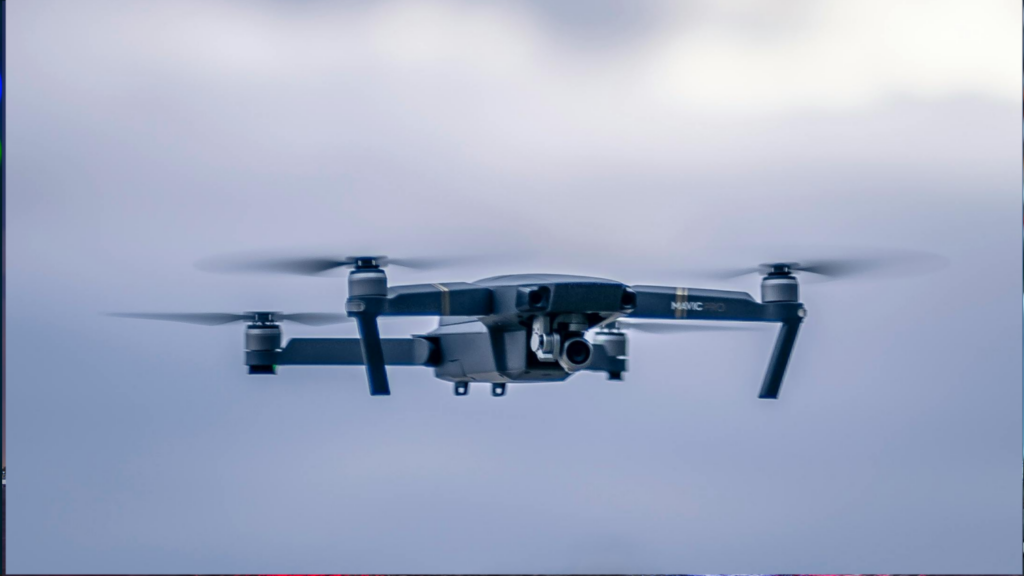An Uneasy Calm Over Guinea
West Africa is no stranger to political turmoil. Consequently, Guinea is no exception to this rule, though it has so far avoided the identity-based conflicts and Islamist insurgencies besetting governments in the Sahel. Moreover, Guinea’s relative internal stability- despite a successful coup d’etat in 2021- is at a critical juncture. Will President Mamady Doumbouya restore constitutional rule and position Guinea as a gateway for international investment? Or will political uncertainty and the spread of the Sahel’s Islamist insurgencies westward hobble Guinea’s development?
Guinea Since Independence
After Guinea unexpectedly voted for independence from France in 1958, President Sekou Toure embraced Marxism and built relations with the Soviet Union as part of his anticolonial foreign policy (Chrisafis, 2002). However, by his death in 1983, Guinea had descended into a one-party dictatorship with a dysfunctional economy propped up by aluminium and bauxite exports (Meredith, 2012, pp. 273-74). Therefore, subsequent military coups have beset the peaceful transfer of power in Guinea, with the 2021 coup that ousted President Alpha Condé triggered by popular unrest following his amendment of the constitution to increase term limits (Akuamoah, 2021).
Guinea plays a notable role in West African geopolitics. Hence, during the Cold War, the country was a significant regional actor, providing sanctuary for rebels fighting the Portuguese colonial regime in Guinea-Bissau and acting as a powerbroker in unstable Liberia and Sierra Leone (Kisangani and Pickering, 2022, pp. 195, 204). Consequently, the Sierra Leonean Civil War (1991-2001) endangered Guinea’s security as 180,000 refugees flooded into the country and the government was drawn into a proxy conflict with Liberia’s warlord-cum-president Charles Taylor (IISS, 2001, p. 242). However, the stabilisation of Liberia and Sierra Leone during the 2000s marked the end of regional threats to Guinea’s internal stability.
Old Wine in New Bottles
Doumbouya has warm relations with the Sahelian military juntas in Burkina Faso, Mali and Niger. He has also kept Guinea inside the Economic Community of West African States (ECOWAS) regional bloc despite Guinea’s suspension following the coup in 2021 (AfricaNews, 2021). Moreover, Doumbouya used political turmoil in Conakry to justify the coup, whereas the Sahelian juntas drew from resentment over the failure of the French-led Operation Barkhane to prevent the spread of Islamist insurgents and France’s perceived influence over those countries’ governments (Watling and Wilen, 2024). Furthermore, due to Guinea’s internal stability vis-à-vis the Alliance of Sahel States (AES- consisting of Burkina Faso, Mali and Niger), Doumbouya maintains political control without the help of anti-ECOWAS rhetoric or Russian mercenaries (Crisis Group, 2024).
Doumbouya has since used anticolonialism to justify his repression of the political opposition, proclaiming in 2023 that Conde and democracy had been imposed on Guinea (Gavin, 2023). Since seizing power, he has diversified Guinea’s range of geopolitical partners to undermine ECOWAS and Western pressure for democratisation. Moreover, his pragmatic foreign policy has resulted in ECOWAS lifting economic sanctions- imposed after the 2021 coup, whilst allowing Russia to use Guinea’s territory to import arms into Mali (France 24, 2024; RFI, 2025). Meanwhile, new and pre-coup Chinese investments in the mining sector create jobs and reduce Guinea’s economic exposure to Western democracies (USIP, 2025).
Questions remain over Doumbouya’s commitment to restoring civilian rule. The transitional parliament’s adaptation of a draft constitution in 2024 (to replace the suspended 2021 constitution) and scheduling of a constitutional referendum in September 2025 indicate efforts to normalise the post-coup regime (ISS, 2025). However, the delay of the transition timetable from December 2024 to December 2025, in tandem with crackdowns on protests and opposition movements, reveals the junta’s intent to tightly manage the election (Njie and Rukanga, 2024). Furthermore, Doumbouya himself is likely to legitimise his position by running as a candidate in the presidential election this December (Reuters, 2025).
Meanwhile, Guinea’s economic outlook is improving. Political volatility has not deterred investments from Rio Tinto and Chinese multinationals in the country’s mining sector. Guinea will become one of the world’s largest iron ore producers when the under-construction Simandou mine begins production, with most exports intended for the Chinese industry (SCMP, 2025). Additionally, rising energy access as well as growth in the agricultural and industrial sectors must continue to raise living standards and reduce Guinea’s economic dependence on unprocessed commodity exports (ADB, 2025). Conversely, mining royalties more than cover the government’s debt servicing costs, resulting in debt as a share of GDP declining and improving fiscal stability (BTI, 2024).
Prospects
Guinea’s rising primary commodity exports will increase its international status. Chinese commitments to the Simandou project are prompted by its need to reduce its reliance on iron ore imports from US-aligned Australia, with whom bilateral ties have become strained (Fillingham, 2024). In addition to raising its global importance, greater mining revenues will increase Guinea’s GDP and the government’s revenues, thereby reducing the economic gap between itself and important regional actors, Côte d’Ivoire and Senegal. Thus, leveraging Doumbouya’s unique diplomatic position, Guinea maintains relations with both the AES and ECOWAS, leaving him well placed to mediate between the two parties and present himself as West Africa’s preeminent statesman.
However, despite such promise, escalating violence in Mali poses a growing risk to Guinea’s internal stability. In 2025, Jama’a Nusrat ul-Islam wa al-Muslimin rebels have launched attacks deep inside Mali’s government-held Southwest, within 50km of the Guinean border (Africa Center, 2025). Therefore, the worsening of Mali’s security environment could enable Islamist groups to launch cross-border raids into eastern Guinea, as is the case with former safe havens Togo and Benin, themselves affected by the spillover of violence from Burkina Faso (Africa Center, 2025). Thus, lawlessness in Guinea’s hinterland would generate a socioeconomic crisis in rural areas and reduce investor confidence in its mining sector.
Bibliography
- Africa Center for Strategic Studies (2025). The Shifting Front of Militant Islamist Violence in the Sahel – Africa Center. [online] Africa Center. Available at: https://africacenter.org/spotlight/militant-islamist-violence-sahel/.
- African Development Bank. (2019). Guinea Economic Outlook. ADB [online] Available at: https://www.afdb.org/en/countries/west-africa/guinea/guinea-economic-outlook.
- AfricaNews (2021). ECOWAS suspends Guinea after coup. [online] Available at: https://www.africanews.com/2021/09/08/ecowas-suspends-guinea-after-coup//
- Akuamoah, E.M. (2021). The Coup in Guinea: Causes and Consequences. [online] Australian Institute of International Affairs. Available at: https://www.internationalaffairs.org.au/australianoutlook/the-coup-in-guinea-causes-and-consequences/.
- BTI (2024). Guinea Country Report. [online] Available at: https://bti-project.org/en/reports/country-report/GIN.
- Chrisafis, A. (2009). Guinea: war, poverty, dictatorship and bauxite. The Guardian [online] Available at: https://www.theguardian.com/world/2009/sep/29/france-guinea-colonial-relationship.
- Crisis Group (2024). A Splinter in the Sahel: Can the Divorce with ECOWAS Be Averted? [online] Available at: https://www.crisisgroup.org/africa/sahel/burkina-faso-mali-niger/splinter-sahel-can-divorce-ecowas-be-averted.
- Fillingham, Z. (2024). Simandou: China’s Pilbara Killer Comes of Age. [online] Geopolitical Monitor. Available at: https://www.geopoliticalmonitor.com/simandou-the-pilbara-killer-comes-of-age/
- France 24. (2024). West African bloc ECOWAS lifts sanctions against Guinea, Mali. [online] Available at: https://www.france24.com/en/live-news/20240225-%F0%9F%94%B4-west-african-bloc-ecowas-lifts-its-economic-sanctions-against-guinea-statement.
- Gavin, M. (2023). A Dispiriting UNGA. [online] Council on Foreign Relations. Available at: https://www.cfr.org/blog/dispiriting-unga
- ISS Africa. (2025). Trust deficit threatens Guinea’s peaceful return to civilian rule | ISS Africa. [online] Available at: https://issafrica.org/iss-today/trust-deficit-threatens-guinea-s-peaceful-return-to-civilian-rule
- International Institute for Strategic Studies (2001). The Strategic Survey: 2000/2001. Oxford University Press.
- Kisangani, E. Jeffrey, P. (2022). African Interventions : State Militaries, Foreign Powers, and Rebel Forces. Cambridge University Press.
- Meredith, M. (2012). The State of Africa : a History of Fifty Years of Independence. Erscheinungsort Nicht Ermittelbar: Simon & Schuster Ltd.
- Njie, P. Rukanga, B. (2024). Guinea lawyers on strike over arrests and military crackdown. BBC News. [online] Available at: https://www.bbc.co.uk/news/articles/c99wv9jggypo.
- Reuters (2025). Guinea’s prime minister announces elections in December 2025. [online] 12 May. Available at: https://www.reuters.com/world/africa/guineas-prime-minister-announces-elections-december-2025-2025-05-12/.
- RFI (2025). How Guinea became a gateway for Russian weapons to reach the Sahel. [online] RFI. Available at: https://www.rfi.fr/en/africa/20250620-guinea-conakry-a-gateway-for-russian-weapons-in-the-sahel
- South China Morning Post. (2025). Guinea’s vast Simandou mine on track to start delivering for Chinese investors. [online] Available at: https://www.scmp.com/news/china/diplomacy/article/3297304/guineas-vast-simandou-mine-track-start-delivering-chinese-investors.
- United States Institute of Peace. (2025). How Chinese Mining Is Enabling the Guinean Junta’s Power Grab. [online] Available at: https://www.usip.org/publications/2025/03/how-chinese-mining-enabling-guinean-juntas-power-grab
- Watling, J. and Wilén, N. (2024). Assessing the Causes of Strategic Realignment in Sahelian States. The RUSI Journal, [online] 169 (4), pp.64–77. Available at: https://doi.org/10.1080/03071847.2024.2395563.



